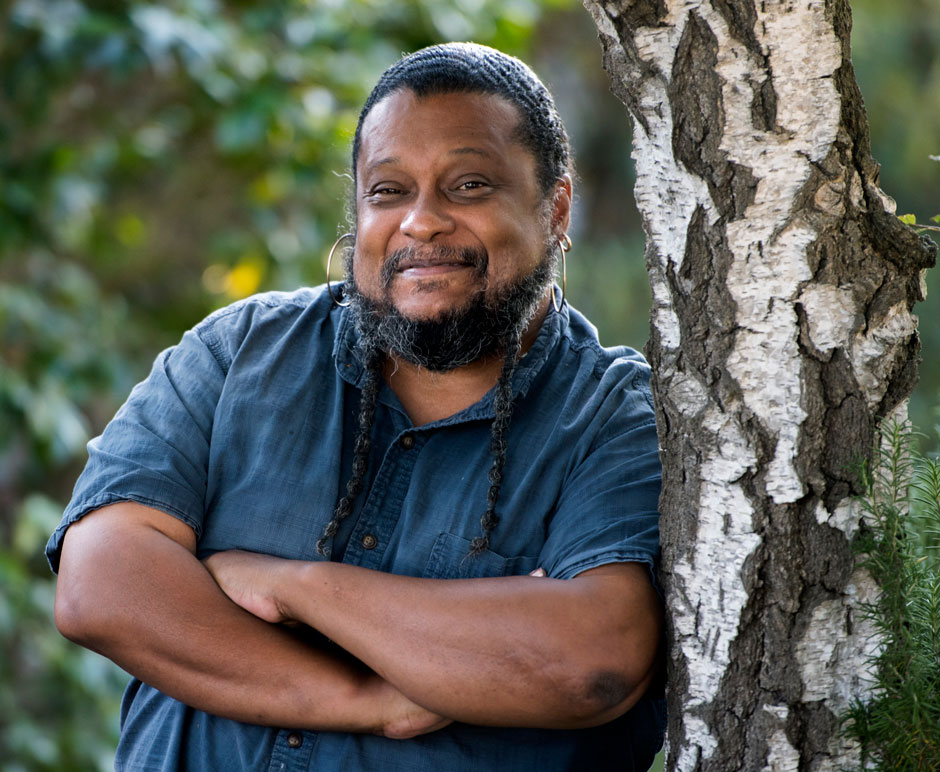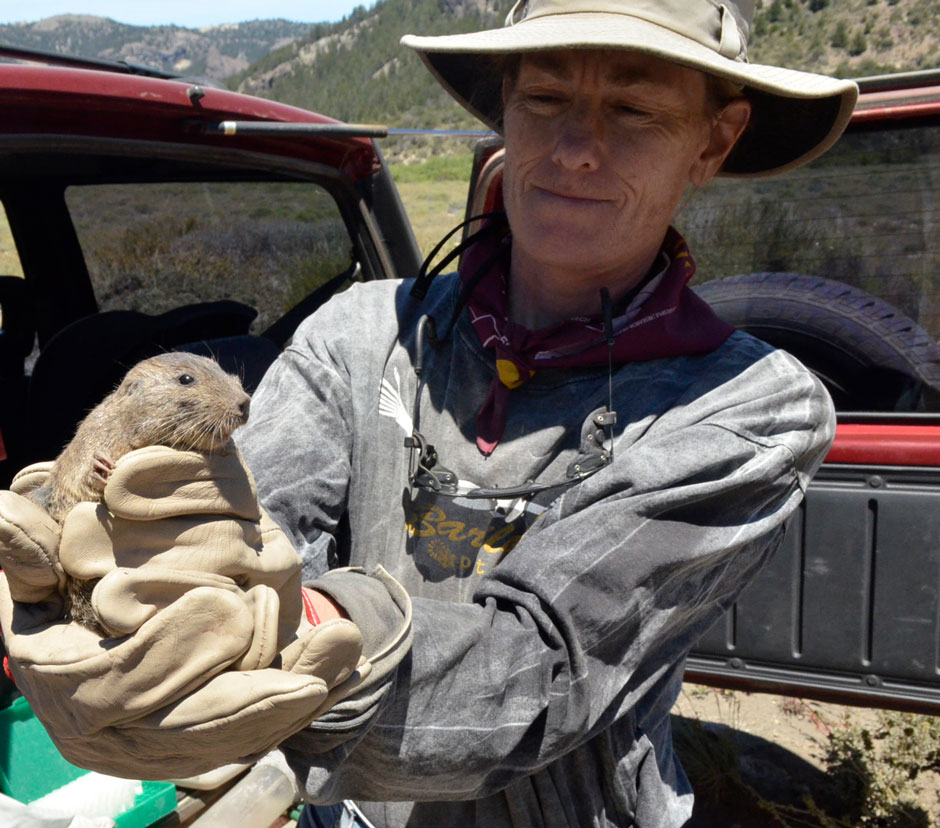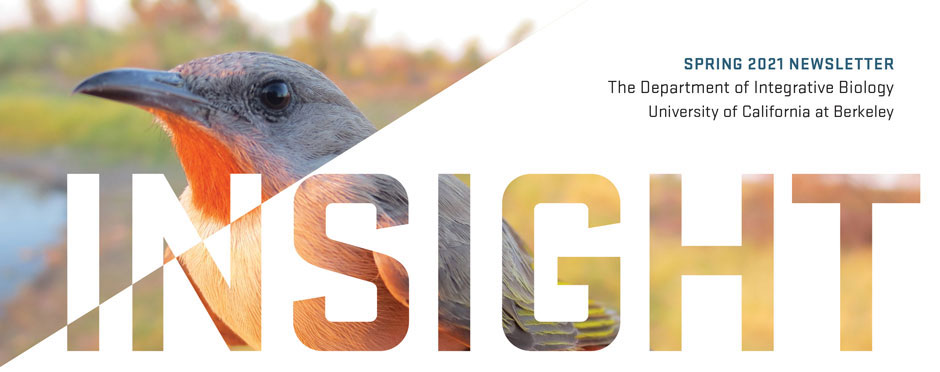IB Welcomes Two New Co-chairs
By Kirsten Mickelwait
 Professor Tyrone Hayes |
On July 1, 2021, the Department of Integrative Biology will welcome two new co-chairs for its next term of leadership. Professors Tyrone Hayes and Eileen Lacey were recommended by their faculty peers to the joint position, which serves a period of three years at the discretion of the dean. Collectively, they have taught at IB for 52 years.
Hayes, whose research focuses on the role of steroid hormones in amphibian development, conducts both laboratory and field studies in the U.S. and Africa. His two main areas of interest are metamorphosis and sex differentiation, but he’s also interested in growth and hormonal regulation of aggressive behavior.
This research has intersected with public health and human welfare: over time, Hayes discovered that certain chemicals that interfere with hormones and cause developmental defects in frogs are heavily used in agriculture, causing human birth defects and cancers. Because people of color are more likely to live or work in areas where they’re exposed to these chemicals, this work has led him to advocate passionately for diversity, equity, and inclusion (DEI). Some of his students are from families who work in the agricultural industry. “So the whole issue of DEI is important to my research in general, but it’s also had an incredible impact on the students I attract to my lab,” Hayes says.
His cross-campus efforts and service around DEI are among the key reasons he agreed to take on the co-chair role. “Rather than just have DEI committees, I want to talk about a ‘DEI forward’ strategy, where that issue is part of every decision we make, from space allocation to hiring practices to graduate admissions to promotion and tenure,” he says. “I don’t think those things are separate from science and biology. I really saw this as an opportunity to work within the department to move all these issues forward.”
 Professor Eileen Lacey |
While Hayes has built connections and experience across campus, Lacey has focused her efforts more within the department. Her deep experience in undergraduate programs will be valuable as IB revamps its curriculum, for example. Reflecting the campus’s priority to make the undergraduate experience more engaging and interactive, she wants to see IB’s curriculum become based more on original discovery, with students encouraged to become explorers themselves.
But “not everybody comes to Berkeley aware of the opportunities, let alone able to participate in them, for multiple reasons,” she says, which is why DEI is at the forefront of her mind, as well. “That’s something Tyrone and I have become very involved in. We’re definitely interested in creating a broader pipeline for STEM students.”
Faculty recruitment is another priority: “We should always be looking for the next arena in which we want to develop expertise. New areas of biology are always emerging, and we want to remain at the front of the pack.”
Does she see her study of mammalian social relationships as a particular asset in her new leadership role? “While there are definitely parallels, humans are challenging!,” she says. “Minimally, as humans trying to understand ourselves, we have blinders and biases that affect how we interpret our interactions. At the same time, our interactions take place within complex cultural, moral and legal contexts that we assume don’t exist in other species.”
For both Hayes and Lacey, the real common denominator between their research and their new administrative role is problem-solving. “That’s what we do as scientists,” Lacey says. “We try to identify questions and find answers.”
Back to Main Spring 2021 Newsletter Page







